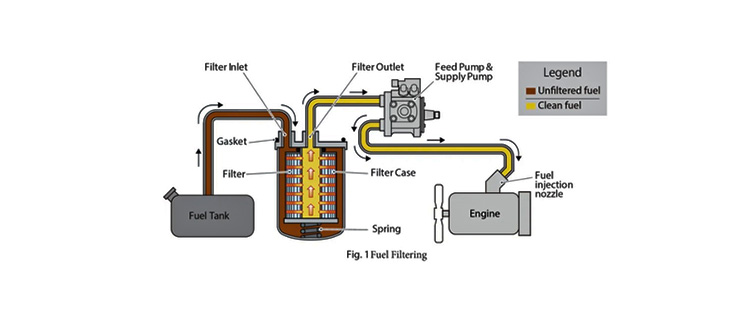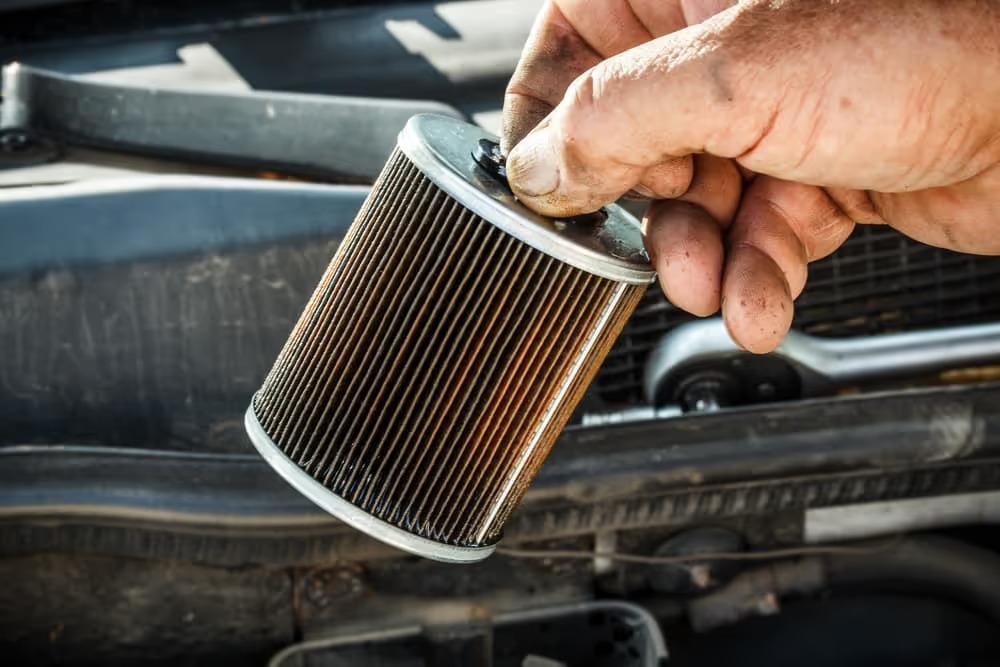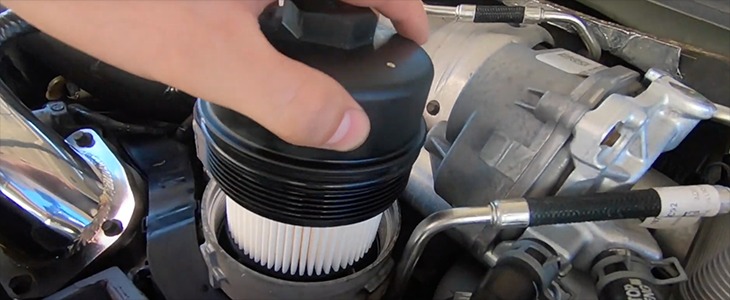The fuel filter is the unsung hero of your car’s engine, silently working behind the scenes to protect your engine from the harmful contaminants that could otherwise bring it to its knees. Think of it as the bouncer at the exclusive club that is your engine—only the cleanest fuel gets in. But how often should you replace it to keep your car running smoothly? Let’s dive into the nitty-gritty details and answer that burning question.
The Fuel Filter: What’s Its Job?
Before we dive into how often you should replace it, let’s take a quick look at what the fuel filter actually does. The fuel filter sits in the fuel line (either inside the tank or somewhere along the fuel system) and does one simple thing: it keeps dirt, rust, and other impurities from reaching your engine. Without it, those contaminants could clog up your fuel injectors, harm your engine, and even cause it to break down.
Types of Fuel Filters: The Inside Scoop
There are two main types of fuel filters that you’ll encounter: inline and in-tank. Here’s a breakdown:
- In-Tank Fuel Filter: Located inside the fuel tank, this filter is often integrated with the fuel pump. Since it’s protected by the tank, it tends to last much longer—typically 80,000 to 100,000 kilometers. It’s less exposed to debris, so it doesn’t need to be replaced as often.
- Inline Fuel Filter: This one is located along the fuel line, outside the tank, and directly filters the fuel before it enters the engine. Because it’s more exposed to external dirt, it tends to clog up faster. Replacement intervals are usually around 20,000 to 40,000 kilometers.
In either case, the fuel filter has a filter element (a mesh or paper element) that traps all the debris. Over time, this element can get clogged up, which brings us to the question: how often should you change it?

How Often Should You Replace the Fuel Filter?
The answer isn’t as simple as “every X kilometers.” The frequency of replacement depends on several factors, including your car’s model, your driving habits, and the quality of the fuel you use. Let’s break it down.
Manufacturer’s Recommendations:
Most car manufacturers recommend changing the fuel filter every 20,000 to 40,000 kilometers for inline filters and every 80,000 to 100,000 kilometers for in-tank filters. These are general guidelines, and sticking to the manufacturer’s recommendations is always a good idea. If you’re unsure, consult your owner’s manual.
Driving Conditions: The Impact of Dust and Dirt
If you regularly drive on dirt roads or through dusty environments, your fuel filter will likely get clogged faster. The more dirt and debris your car encounters, the harder the fuel filter has to work. This can shorten its lifespan significantly. If you’re a city driver, with smooth roads and cleaner air, your filter will probably last longer.
Fuel Quality: Garbage In, Garbage Out
Not all fuel is created equal. If you consistently fill up at sketchy gas stations that don’t adhere to quality standards, you might be feeding your car’s engine low-quality fuel full of contaminants. This will put extra strain on your fuel filter, necessitating more frequent changes. So, be picky about where you refuel!
Driving Habits: Smooth Operator or Aggressive Speedster?
If you tend to drive aggressively—frequent hard accelerations, rapid decelerations, and lots of stop-and-go driving—your fuel system is under more stress. This can cause the fuel filter to clog up faster, as the fuel pump works harder to maintain pressure. A smoother driving style could extend the life of your filter.

What Happens If You Don’t Replace the Fuel Filter?
Now, let’s talk about the consequences of not replacing your fuel filter. Spoiler alert: it’s not pretty.
1. Engine Performance Declines
When the fuel filter gets clogged, the flow of fuel to the engine is restricted. This results in insufficient fuel reaching the engine, causing a noticeable decline in engine performance. If you’ve ever felt your car hesitate or stutter while accelerating, a clogged fuel filter could be the culprit.
2. Increased Fuel Consumption
With a clogged filter, the engine might compensate by using more fuel to maintain performance. This will lead to poor fuel efficiency and higher running costs.
3. Fuel System Damage
If a severely clogged fuel filter is left in place, debris can reach other parts of the fuel system, including the fuel injectors and the fuel pump. Over time, this can result in costly repairs.
4. Engine Stalling and Misfires
A completely blocked filter can lead to stalling or engine misfires, especially during acceleration. If the fuel filter is so clogged that fuel flow is interrupted, the engine can cut out altogether.
5. Dangerous Driving Conditions
If your engine stalls unexpectedly, especially on highways or busy streets, it can pose a serious safety risk. So, think of replacing your fuel filter as an investment in your safety!
How to Tell If Your Fuel Filter Needs Replacing
So, how do you know when it’s time for a fuel filter change? Here are some signs to look out for:
- Decreased Engine Power: If your car feels sluggish or struggles to accelerate, it could be a sign of a clogged fuel filter.
- Engine Stalling: Sudden stalling while driving is a clear indicator that the fuel filter may be obstructed.
- Rough Idling or Misfires: If your car shakes or sputters while idling, it could be a sign that the fuel isn’t flowing smoothly.
- Poor Fuel Economy: An increase in fuel consumption can also be a red flag.

Quick Test: Can You Hear the Fuel Pump?
Another way to check is by listening to the fuel pump. If the fuel filter is clogged, the pump has to work harder to push fuel through the system, which can cause it to sound louder than usual. If you hear strange noises coming from the tank, it’s time to investigate.
Conclusion: Keep Your Car Running Smoothly
Ultimately, replacing your fuel filter is not just about adhering to a maintenance checklist—it’s about safeguarding the heart of your car: the engine. A clean and unobstructed fuel flow ensures optimal performance, helping you get the most out of every drop of fuel and preventing expensive repairs down the road. If your vehicle begins showing signs of poor fuel efficiency or engine hiccups, don’t wait—replace the fuel filter promptly to keep your engine running smoothly and efficiently, just like new.
For the best in high-quality auto parts and accessories, including fuel filters, be sure to check out our selection at QPLCAR.com. With a variety of options for all vehicle makes and models, we make it easy to find the parts you need to keep your car in top shape. Whether you need replacement filters or other car essentials, we’ve got you covered!
 >
>